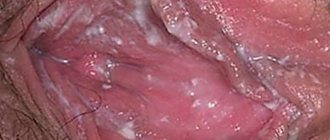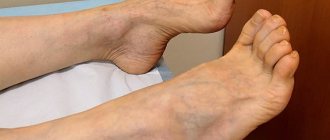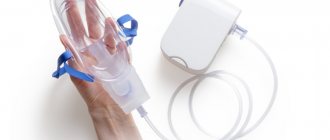Before we tell you how to treat neurasthenia, you should first understand what it is and what the symptoms of this pathological condition are.
Neurasthenia or asthenoneurotic syndrome is the most common type of mental disorder with mild changes. In essence, this is a severe depletion of the nervous system. Due to the similarity of symptoms, it is sometimes identified with chronic fatigue syndrome, however, as recent studies have shown, these conditions have different origins, so the treatment should be different.
A breakdown of the nervous system, which is neurasthenia, is a reversible phenomenon, regardless of how intensively and for a long time the manifestations of this syndrome were observed. It occurs without severe personality disorders and psychosis. But the person is well aware of his condition and tolerates it quite hard, which worsens the quality of his life.
Asthenic neurosis occurs due to some situation that traumatizes the psyche, coupled with chronic “lack of sleep” or a lack of other physiological needs, as well as overload of the body. To these factors are added various painful conditions, including infections.
Both men and women are equally susceptible to the disorder, but in the latter, due to the burden of various pathologies, it is more severe. As for the age limit, the majority of cases are people over 25 years old. This disease even received the “popular” name “manager’s syndrome.” But our fast-paced era has made its own adjustments: due to the complex school curriculum, intellectual and sports activity, representatives of the current younger generation also began to be diagnosed with neurasthenia.
It would be a misconception to believe that asthenoneurotic syndrome is characteristic only of residents of large cities. It’s just that people living in small settlements, including villages, are accustomed to attributing all health problems of this kind to simple fatigue, laziness, and bad character. Meanwhile, neurasthenia awaits every person.
New in the treatment of nervous disorders abroad in women, men and children
Psychotherapy – thanks to group or personal consultations with a doctor, it is possible to develop competent behavior in circumstances of stress, overcome manifestations of disorders, change attitudes towards oneself, and the general state of affairs.
Relaxation techniques help reduce muscle tension, provide an opportunity to relax, and get rid of constant thoughts. Such techniques include the possibility of meditation, yoga, massage, certain types of treatment with mineral waters, color and aromatherapy.
Physical activity, a healthy lifestyle - the role of these components in the treatment of nervous disorders in women and men is only growing. Sports exercises improve mood, promote the quality of the cardiovascular system (significantly affected in nervous disorders), increase the production of serotonin (a neurotransmitter necessary for the quality of functioning of the brain), and improve sleep.
In addition, for such problems, as in the treatment of mental disorders, they resort to drug treatment, using in particular:
- Drugs with additional sedative effects. Many signs of a nervous disorder—head pain, rapid heartbeat—can be relieved with medications designed to solve a specific problem.
- Medicines based on plant extracts (valerian, motherwort, lemon balm, chamomile, etc.).
- Complexes of vitamins and minerals. In a stressful state, vitamins B, E, calcium, and magnesium are especially important.
- Homeopathic medicines, dietary supplements - most often they contain extracts of invigorating (ginseng) or calming (chamomile, lemon balm) effects.
- Prescription drugs are powerful drugs, they are prescribed by a doctor, and they are also taken only under medical supervision: antidepressants, antipsychotics, tranquilizers, which have a variety of side effects and a number of contraindications.
- Non-prescription drugs that have a complex therapeutic effect, improve sleep, memory, performance, mood, and relieve anxiety.
What is depression? A guide to what you should know about depression.
We all experience episodes of sadness or depression - it's a normal part of life. However, constantly feeling sad, experiencing negative thoughts and lack of energy is not something normal. If someone constantly feels sad, empty and irritable, to the extent that it affects their daily activities, this may be a sign of illness.
Depression is a mood disorder that affects 350 million people worldwide, according to WHO. Signs range from prolonged feelings of unhappiness and hopelessness to loss of interest in things you used to enjoy.
The secret of effective treatment of nervous disorders in Israel
Israeli neurology, thanks to advanced developments in the medical field, provides the most effective treatment for many diseases that were previously considered incurable. Specialists with extensive experience and deep practical experience and knowledge are able to analyze patient complaints to the smallest detail, which makes it possible to promptly detect even serious malfunctions in the functioning of the nervous system. Thus, the staff of the Renaissance drug treatment clinic conducts a full examination using the most advanced equipment. Innovative technologies help make an accurate diagnosis and prescribe effective treatments.
Each stage, as in the treatment of drug addiction in Israel, occurs under the strict supervision of a doctor who is personally assigned to each patient. Thanks to this, treatment can be adjusted at any time, which increases efficiency and speeds up the patient’s recovery.
What to do if you have causeless anxiety and worry
It's hard to live in constant stress. If you are experiencing causeless anxiety and fear, the following list will tell you what to do:
- Talk to someone you trust. This could be a relative, a close friend, a psychotherapist or a helpline employee. People are social creatures, so communication is a good way to relieve internal stress.
- Find a way to calm down quickly. There is not always someone nearby with whom you can share. Therefore, it is important to find a suitable method that will help you relax: breathing techniques, soothing music, aromatherapy, self-massage and more. If you cannot independently choose a technique that quickly helps with anxiety for no reason, a specialist will tell you what to do.
- Add physical activity to your life. It is a natural and effective remedy for anxiety. Moderate exercise relieves tension, reduces stress hormones and strengthens the nervous system. Get at least 30 minutes of exercise every day.
- Normalization of lifestyle. Get enough sleep, eat well, give up bad habits. This stabilizes physical performance and neurotransmitter levels, which helps maintain emotional balance.
- Start keeping a journal. Taking notes can help you identify patterns of anxiety flare-ups, understand the causes, and spot early signs of them. Also, thanks to this, you will begin to focus more on positive events that you may not have noticed before.
When worried for no reason, everyone who regularly encounters this wants to know what to do. There is no universal method, but the 5 steps listed above are recommended for every person with increased anxiety. This may be enough to alleviate symptoms. But if self-help techniques do not give the desired effect, then if you regularly experience anxiety for no reason, you need to find out what to do from a specialist.
How to overcome a nervous breakdown and undergo treatment in Moscow
When a breakdown occurs, the best way out of it for the “breakdown” person is to experience his situation completely, that is, there is no need to push emotions inside, suppressing them within himself. It’s better to take them out, because periodic discharge is simply necessary. If you feel that a breakdown is close, but it hasn’t happened yet, try to switch to something and get distracted. The guideline here could be the following: the higher the tension inside, the more powerful the way to escape should be.
If you have any guesses about what caused it, try to eliminate or at least weaken such a source of tension. In situations where you do not know what the cause of the situation is, it is recommended to seek support from an experienced psychotherapist. The problem is that people clearly understand when treatment for drug addiction or other pathological addictions is required, and do not attach much importance to disorders of this type and psychological aspects in general. The big mistake of those who are faced with a situation of this kind is to ignore the problem itself in the expectation that everything will go away on its own, but this is not the case. Even if a nervous breakdown does not leave any mental consequences, it can still cause significant damage to health. That is why, with such a problem, there is no need to engage in independent treatment; it is better to seek help from a specialist. In Moscow, the best place to help you with nervous disorders and breakdowns is at the Renaissance RC, which is a branch of an international network of clinics.
Symptoms
Neurasthenia manifests itself with the following symptoms:
- Excessive irritability even over trifles, short temper, anger, constant dissatisfaction.
- Impatience - the desire to get everything at once, the impossibility of waiting - it literally “kills”.
- Constant feeling of fatigue, weakness.
- Pain in the temples or a sensation of encircling, squeezing pain in the head.
- Lack of ability to concentrate and do one thing for a long time.
- Violation of the sequence of thoughts, general perception of the environment.
Speaking in more detail about the symptoms of asthenoneurotic syndrome, it is more correct to consider the disorder in phases, since the intensity of its manifestation gradually increases. But more often the disease stops at a certain phase, that is, its development does not occur, which is reflected in the diagnosis.
Hypersthenic (excitable) form
This is the initial stage of the disease, which is recorded most often. It is characterized by nervousness, irritability, and excitability.
The patient is unnerved by any, even quiet, sounds (creaking and light knocking of the door, whispering, clock ticking, dripping water, etc.), bright light, the presence of people nearby and their movement. The most insignificant reason causes an outburst of emotions, uncontrollable irritation or even anger. Without realizing the reasons for aggression, a person can insult or offend someone.
The patient is impatient, strives to do several things at once, fusses, but his performance leaves much to be desired. It is not weakness or rapid fatigue that is to blame for this, but a problem with concentration and constant distraction.
The sleep pattern is disrupted: the patient is lethargic during the day, and at night he falls asleep with difficulty and sleeps poorly, with nightmares, and often wakes up. Waking up happens either earlier than usual or later.
Constant headaches are called “neurasthenic helmet” - they are compressive and very debilitating. Pain when turning and tilting the head moves along the spine to the back. Mental or physical stress makes them more intense.
Irritable weakness (intermediate form)
This phase combines severe irritability with a rapid decrease in the body's resources. In principle, this is a reflection of the clinical essence of the disorder.
Attacks of irritation are the most intense, outbursts of anger instantly turn to a stream of tears, completely unusual for the individual. Such tearfulness arises from the patient’s inability to overcome overwhelming discontent. The mood changes instantly: sometimes gloom, sometimes joy.
The patient is often lethargic, he is not interested in anything, his appetite becomes worse or disappears altogether. Digestion suffers, which is reflected by diarrhea, constipation, belching, and heartburn. The heart rate increases, pulse and blood pressure fluctuate. The limbs become sluggish, instability and so-called floaters appear before the eyes, a rush of heat is replaced by chills, redness of the skin is replaced by pallor. Libido decreases and men may experience problems with erectile function. There may be a frequent urge to urinate.
Hyposthenic (inhibitory) form
At this stage, depression, weakness, gloom, and lethargy are especially pronounced. I don’t want to do anything, but I don’t feel anxiety or melancholy. The patient’s thoughts are focused only on his own unpleasant sensations in the body, and he, assuming that he has some kind of serious illness, turns to doctors, who, naturally, do not find it.
Very often, neurasthenia can be eliminated with good rest. But if this does not help and the disease has gone too far, then you will have to leave yourself in the hands of professionals.
Compare prices for treatment of nervous disorders in the best clinics
As in the treatment of addictions, the variation in prices between clinics in different countries and even cities is quite significant:
- Thus, a consultation with a psychotherapist or neurologist in St. Petersburg will cost approximately 1000-1500 rubles;
- in Moscow, prices for a similar service usually start at 2,000 rubles.
In Israel, the cost of a consultation will range from $200-400, however, the quality of treatment is much higher, including due to a change of environment and the opportunity to combine a course of therapy with rest.
Other types of burnout
In addition to professional and maternal, there are other types of emotional burnout. These include:
- caring for a seriously ill relative (a person has to take care of all the needs of another, which requires a lot of time, suppressing one’s own irritation or disgust, most often without any compensation);
- alcoholism and drug addiction of family members (material and moral reserves are aimed at eternal resistance to the disease, attempts to save a relative from addiction, and one’s own life is not left, codependency arises);
- toxic relationships, which include emotional abuse, manipulation, gaslighting.
When a person invests more in a certain area than he receives, without adequate compensation, he inevitably experiences emotional burnout. The more he lives in the interests of others, cares about their comfort and safety, takes responsibility for his financial condition or moral well-being, the more susceptible he is to emotional burnout.
Read reviews about the treatment of nervous disorders
“A couple of months ago a difficult period began in my life. Troubles during the workday were accompanied by difficulties at home. I realized that it was time to change something or at least take a break. I had the opportunity to go on vacation and I took it. I went to Israel, where I decided to turn to specialists, because I felt that when I returned home, I would encounter the same difficulties. Prof. worked with me. Drori Vivian, a specialist in the field of neurology with extensive experience. I am very glad that I turned to a pro. After just a few sessions, I felt relief and began to understand what exactly didn’t suit me and how to deal with it. Thank you doctor!”
Yaroslava Zaichenko, Belgorod
“I heard a lot about treatment in Israel, but I always believed that it was more relevant for major medical problems, complex diseases, treatment of alcoholism, etc. Therefore, when the issue of a nervous disorder arose in my life, on the one hand, I understood that I wanted to get the most qualified help, but on the other hand, I was not ready to go abroad with a problem like mine. And here it came to the rescue that in Moscow there is a branch of a well-known network of clinics - Renaissance RC. They really helped me here, now I feel calmer about the circumstances and know that in a pinch I will always be supported.”
Vladimir Davidov, Moscow
Diagnostics
Symptoms of affective disorders are difficult to assess, especially for patients personally. Only a psychiatrist can diagnose the disease. It is impossible to make a diagnosis using tests on the Internet or friends.
The main method for diagnosing asthenic depression is clinical questioning. During the consultation, the specialist clarifies not only complaints, but assesses the general condition of the person. What matters is the patient’s behavior, facial expressions, and reaction to questions.
For some patients, especially those with severe illness, it is more difficult to obtain rational answers to questions, so communication with immediate family may be required. To assess levels of anxiety or suicidal risk, special scales are used (Hamilton, Columbia). Laboratory tests are not indicative, but a general clinical examination is necessary to exclude or control somatic diseases.
Our advantages
The multidisciplinary medical center offers each visitor services for the diagnosis and treatment of various diseases. Our advantages include:
- the most popular areas of work: neurology, cardiology, surgery, gastroenterology, etc.;
- modern diagnostic equipment;
- all types of laboratory analyzes and tests;
- the most effective methods of treating various pathologies;
- individual approach to the selection of therapy;
- auxiliary treatment methods: physiotherapy, physical therapy, massage;
- comfortable day rooms;
- Appointment by appointment at a time convenient for the patient;
- affordable prices for all services.
Neurasthenia is a disease in which a person does not have the strength to pull himself together. Without qualified help and elimination of the traumatic factor, it will progress, increasingly depleting the nervous system. Help yourself get out of the vicious circle, sign up with Health Energy specialists.









